Background Checks for Employees: Everything HR Needs to Know

Hiring has always been about more than filling a position. The people you bring into your organization shape culture, productivity, and reputation. While resumes and interviews reveal part of the story, employee background checks add the crucial context HR teams need to make informed, compliant, and safe hiring decisions.
This guide covers everything HR professionals need to know about background checks, from why they matter to how to conduct them effectively in 2026.
What is an Employee Background Check?
An employee background check is a process that verifies the identity, history, and qualifications of a candidate. Depending on the role, it can include criminal records, employment verification, education history, financial background, and professional licenses.
Background checks help organizations:
- Confirm accuracy of candidate claims
- Reduce the risk of negligent hiring lawsuits
- Maintain workplace safety
- Comply with industry and government regulations
- Build trust among customers, partners, and stakeholders
Why Background Checks Matter for HR
Every HR leader has felt the pressure of making a fast hire while balancing risk. Background checks are a safeguard against hiring mistakes that can cost money, reputation, and even lives in high-risk industries.
Key benefits include:
- Workplace safety: Protect employees, customers, and clients from potential harm
- Risk management: Reduce liability if negligent hiring is claimed in court
- Regulatory compliance: Stay aligned with laws and industry-specific mandates
- Improved retention: Employees hired with proper screening are less likely to leave due to hidden issues
- Reputation protection: Avoid scandals tied to hiring someone with a disqualifying history

Types of Employee Background Checks
Criminal History Checks
Searches local, state, and federal records for convictions, pending cases, or warrants. Employers often focus on offenses relevant to the role, such as theft for financial positions or abuse for healthcare and childcare roles.
Employment Verification
Confirms past job titles, responsibilities, and dates of employment. Prevents resume fraud and validates experience claims.
Education and Credential Verification
Checks degrees, certifications, and professional licenses. Particularly critical in healthcare, finance, and roles requiring state licensure.
Credit Reports
Permitted only for certain roles. Often used in financial services or executive positions where fiduciary responsibility is required.
Driving Records
Necessary for roles involving vehicles, from delivery drivers to fleet managers. Can reveal suspensions, DUIs, or excessive violations.
Drug Testing
Common in healthcare, transportation, and safety-sensitive industries. Helps reduce workplace accidents and compliance risks.
Reference Checks
Provides qualitative insight into character, work ethic, and performance from previous managers or colleagues.
Looking for tools that streamline these checks? Explore our comparison of the best employee onboarding software.
Industry-Specific Screening Requirements
Healthcare
Healthcare organizations must comply with federal and state laws requiring checks against abuse registries, sanction lists, and professional license databases. Regular re-screening is often mandatory. Learn more in our guide to background checks for healthcare employees.
Education and Childcare
Teachers and volunteers typically undergo fingerprinting, FBI background checks, and child abuse registry searches. Many states mandate periodic rechecks every 2–5 years. We break down teacher and volunteer background screening requirements in detail here.
Financial Services
Financial regulators may require credit checks, FINRA screenings, and other checks to prevent fraud, embezzlement, and insider trading risks.
Nonprofits and Volunteer Programs
Organizations working with vulnerable populations, such as youth programs, must meet federal and state screening requirements.
Transportation and Logistics
The Department of Transportation mandates specific drug testing and driving record checks for drivers of commercial vehicles.
Remote Hiring
Remote employees present unique challenges around identity verification and international compliance. Discover how to conduct effective remote employee background checks.
Legal and Compliance Considerations
Fair Credit Reporting Act (FCRA)
The FCRA governs how background checks can be conducted by third-party consumer reporting agencies. Employers must:
- Obtain written consent before running a check
- Provide disclosure about the nature of the check
- Follow adverse action procedures if hiring is denied
Equal Employment Opportunity Commission (EEOC) Guidance
The EEOC enforces anti-discrimination laws. Employers must ensure background checks do not disproportionately exclude candidates based on race, national origin, or other protected categories.
Ban-the-Box Laws
Many states and municipalities restrict when employers can ask about criminal history. Typically, questions must wait until later in the hiring process.
State-Specific Regulations
Some states regulate how far back employers can look into criminal history or whether credit checks are permissible.
Global Hiring and GDPR
For international hiring, employers must comply with GDPR and other data protection laws, which limit how personal data is collected, stored, and shared.

How Technology is Transforming Background Checks
Modern pre-employment screening software is replacing manual, paper-heavy processes. Benefits include:
- Faster turnaround times, often within 24–72 hours
- Automated compliance with FCRA, EEOC, and state laws
- Integration with applicant tracking systems (ATS) and HRIS platforms
- Secure candidate portals for consent and documentation
- Ongoing monitoring and re-screening capabilities
See which screening software providers are leading innovation in 2026.
The Candidate Experience
Background checks can be stressful for candidates if handled poorly. To improve candidate experience:
- Be transparent about what will be checked and why
- Secure consent digitally for ease and clarity
- Provide updates on status to reduce anxiety
- Offer candidates the opportunity to explain discrepancies
A positive screening experience reflects well on the employer brand and helps reduce candidate drop-off.
Emerging Trends in Employee Background Checks
- Continuous monitoring: moving beyond pre-hire checks to ongoing reviews
- AI and automation: improving accuracy and reducing turnaround times
- Global expansion: navigating compliance in international hiring
- Privacy concerns: balancing safety with candidate rights
Common Pitfalls to Avoid
- Relying on outdated databases
- Skipping checks for temporary or contract workers
- Failing to re-screen long-term employees in regulated industries
- Applying inconsistent standards across candidates
- Ignoring the impact on candidate experience
Background checks are no longer just a procedural step in hiring. They are a cornerstone of risk management, compliance, and workplace culture. By adopting clear policies, following the law, and using modern screening technology, HR leaders can hire with confidence while creating a fair and transparent process for candidates.
At the same time, the right technology partner makes all the difference. Legacy providers often struggle with speed, transparency, and candidate experience. Newer solutions like Vetty are designed to give HR teams the automation, compliance support, and mobile-first design they need to hire faster while building trust with candidates.
Whether you are screening healthcare staff, remote workers, or volunteers, the principles remain the same: consistency, compliance, and a candidate-first approach. With Vetty, background checks become a seamless part of hiring, not a barrier.
FAQs
How long does an employee background check take?
Most checks take 24–72 hours, but international verifications or complex cases can take longer.
Can an employee be hired before the background check is complete?
It depends on company policy and industry requirements. Many regulated industries prohibit starting work until checks are cleared.
What information shows up on a background check?
Typically criminal history, employment and education verification, licenses, and sometimes credit reports or driving records.
Do all roles require the same background checks?
No. Screening should align with role responsibilities and legal requirements. For example, healthcare requires license verification, while driving roles require motor vehicle records.
How often should employees be re-screened?
Healthcare, education, and financial industries often require periodic re-screening. Many organizations are adopting continuous monitoring to stay ahead of risks.
Let’s Build Your Hiring Advantage
Want to screen faster, place sooner, and win more? Let’s talk.
Read more articles:






